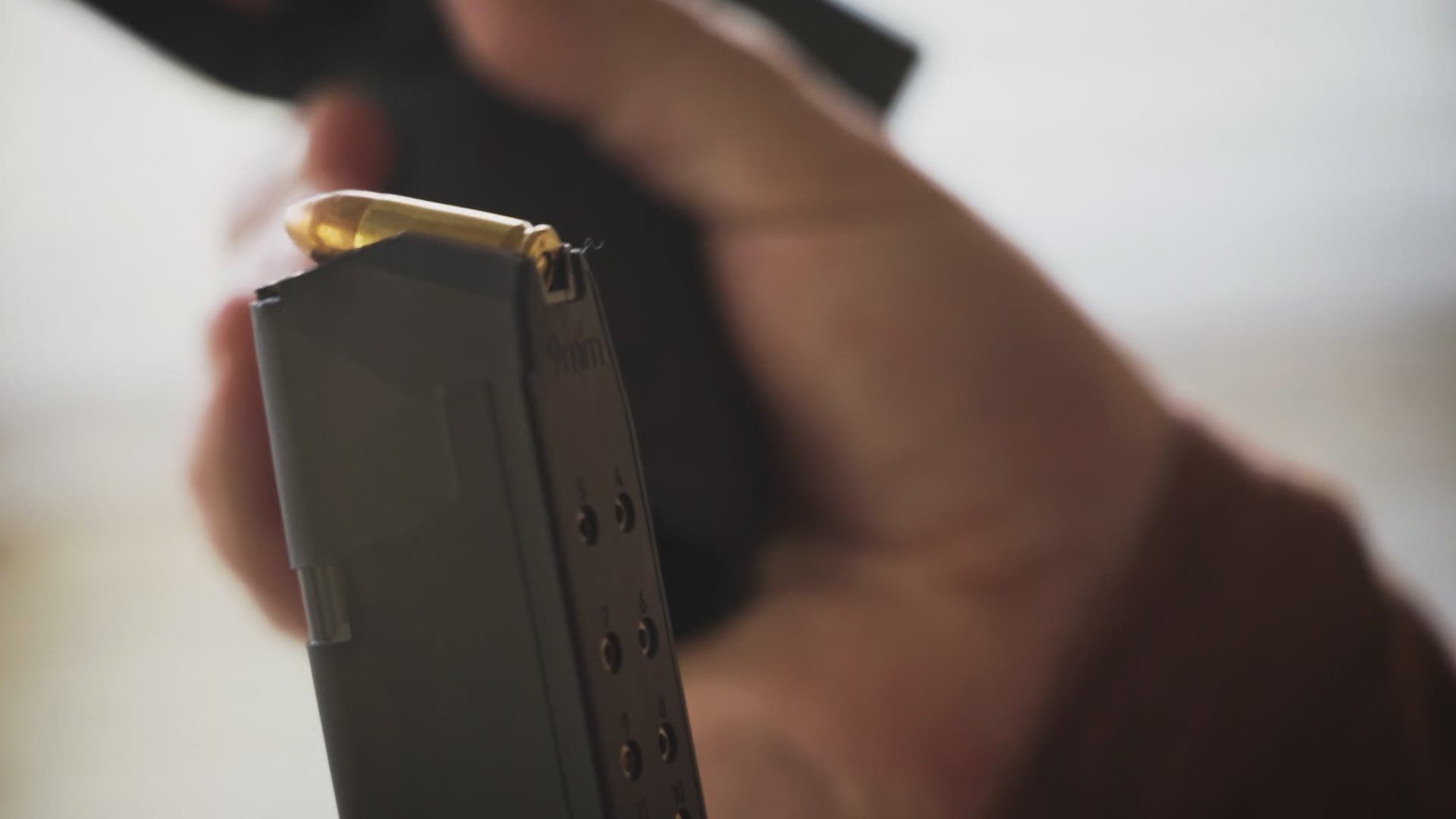FARMERS BRANCH, Texas — Area gun stores and ranges in the Dallas-Fort Worth area continue to face ammunition shortages as manufacturers struggle to keep up with demand, fueled by record gun sales in 2020.
COVID-19 is also to blame; the virus has slowed production in multiple trades due to smaller workforces in various factories.
Empty or near-empty shelves where ammunition once was can be found in mom-and-pop gun stores statewide as well as big-box sporting goods stores.
David Prince, owner of Eagle Gun Range in Lewisville and Farmers Branch, has been watching profits fluctuate ever since the pandemic began in March of last year, when he says the run on guns started.
"We couldn't get them in fast enough," Prince said. "We had around 100 or 120 firearms on the shelf at the time. We got down to zero during March and April. Just nothing."
The National Shooting Sports Foundation backs that up.
In a recent report, the NSSF reported that an estimated 21 million background checks were connected to completed gun sales in 2020.
Per NSSF, that number beat background checks for 2019 (13.2 million) in connection to completed gun sales by 60 percent.
The FBI National Instant Criminal Background Check System, which gun stores use to either certify or disqualify a gun sale, reported that 39,695,315 background checks were done in all of 2020.
NSSF reported that 8.4 million people bought a firearm for the first time in 2020.
It also said that 40 percent of 2020's buyers were women, and that 58 percent more African Americans bought guns in 2020 than in 2019.
"We went months without seeing a Glock," Prince said. "I mean, months. And they're the most prolific firearm on the market."
The increased sales can be connected largely to the 2020 election, pandemic uncertainty, and social unrest.
Prince said that things started to go back to normal around June or July. He was selling around 10 to 12 thousand rounds of ammo per day between his stores then.
But starting in late August and September, he said ammunition supply started to wane.
He now sells roughly one to two thousand rounds of ammunition per day, and the price for 9mm ammo (which is the most lucrative for manufacturers to make) has gone up too.
"We were paying $8 or $9 a box. Now we're paying $27 a box," Prince said.
"We're selling those boxes for $30 to customers. So we're making two dollars a box. That's unheard of in this industry."
Fewer people are coming to waste ammo at Prince's range, too.
"We used to have full Saturdays, and now we're seeing about half the people show up," Prince said. "We're probably down up to 30 percent on our gross profit."
Raw materials and exports from other countries are also facing a slowed supply chain due to COVID-19.
For instance, right now there are several reports of a primer shortage, which is the part of a round that initiates combustion.
Per Guns and Ammo: "Primer manufacturers are working hard to feed the market. 'We continue to operate at full capacity and are committed to meeting the current strong demand for ammunition and primers,” Federal representatives told G&A. Remington is also working overtime: “We are producing at record levels to attempt to satisfy the unprecedented demand for primers in support of the hand loading consumer, our own loaded rounds, and our industry partners loaded rounds.
"Though there are dozens of major and minor ammunition manufacturers in the U.S., only four domestic manufacturers produce primers: Federal, CCI, Remington and Winchester."
The industry is also facing ammo hoarders, and in some stores, there's a limit to how many rounds customers can buy.
Prince is doing his best to not pass the buck to his customers by gouging ammo prices. That, he said, is the tough part: making money with barely anything to make money with.
"We don't want to give our customers sticker shock," Prince said. "But they also have no ammo to protect their families or practice with. It's tough."

